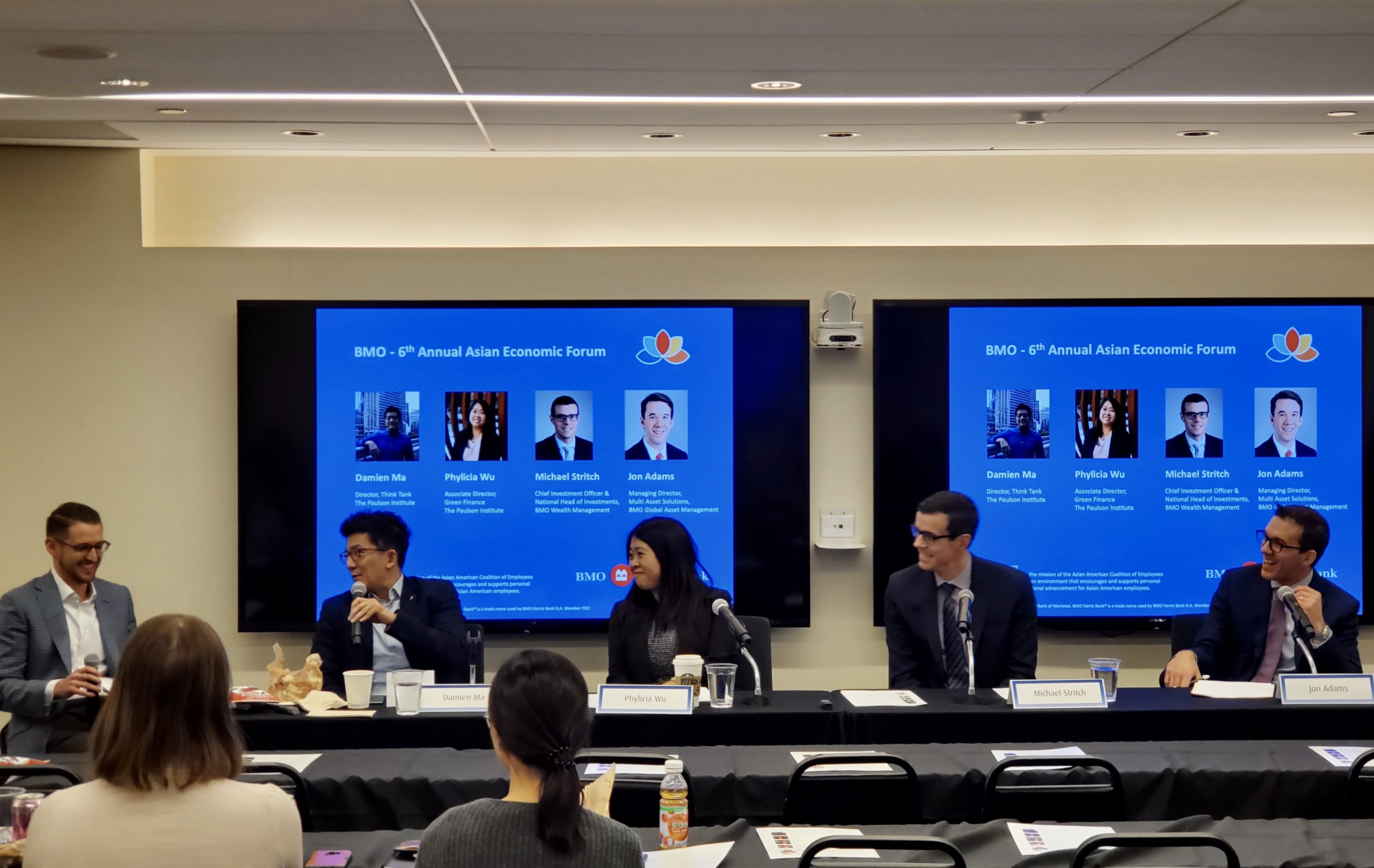Damien Ma, Director of the Paulson Institute’s think tank, MacroPolo and Phylicia Wu, Associate Director of the Institute’s Green Finance Center, spoke on a panel about the economic outlook for Asia this year at the Asia at the 6th Annual Asian Economic Forum, hosted by BMO Harris Bank. The panel fielded questions on green finance, technology, trade, and investment trends and included Michael Stritch, Chief Investment Officer and National Head of Investments at BMO Wealth Management, Jon Adams, Managing Director at BMO Global Asset Management, and moderator Michael Zahorik, BMO Capital Markets Associate.
Sustainable investing is a growing trend for the investment community and it was a major focus of the panel. BMO has announced that it will commit $400 billion over five years for sustainability. Wu discussed the value of green finance and its importance to investors and corporations as it moves from niche to mainstream. “Asia’s green finance market is beginning to move beyond policy-led demand and towards greater commercialization and sustainability,” she said. “It makes business sense—and common sense—to be green. We live in a world where the effects of climate change and persistently high rates of carbon emissions are beginning to take center stage.”
“In Asia, these effects could be more acutely felt, climate change and environmental effects are even more real,” Wu added. “The practical question is: how do we pay to mitigate the effects? How do we adapt our future? Governments can’t pay for it all. So, the momentum in the private sector for green finance to promote sustainable development is key.”
In the midst of the much-publicized trade war, the potential for the US and China decoupling and what that could mean for the economic future of Asia and the US was also top of mind for the panel. Ma spoke to the implications of growing separations in the US-China tech relationship. “This trade war was never about trade. It was always about technology. The real risk is decoupling—the degree to which the US and China diverge, especially around technology. That risk is going to be there no matter what happens with trade.”
“It’s important to have an informative discussion around key global economic and political issues that are affecting Asia and how these issues will ultimately affect the US,” said Henry Munez, Group Managing Director, Commercial Banking and sponsor of the event. The Paulson Institute will continue to contribute to the ongoing discussion on critical global issues like technology and green finance as these issues develop and occupy an even larger role in the US-China relationship.





